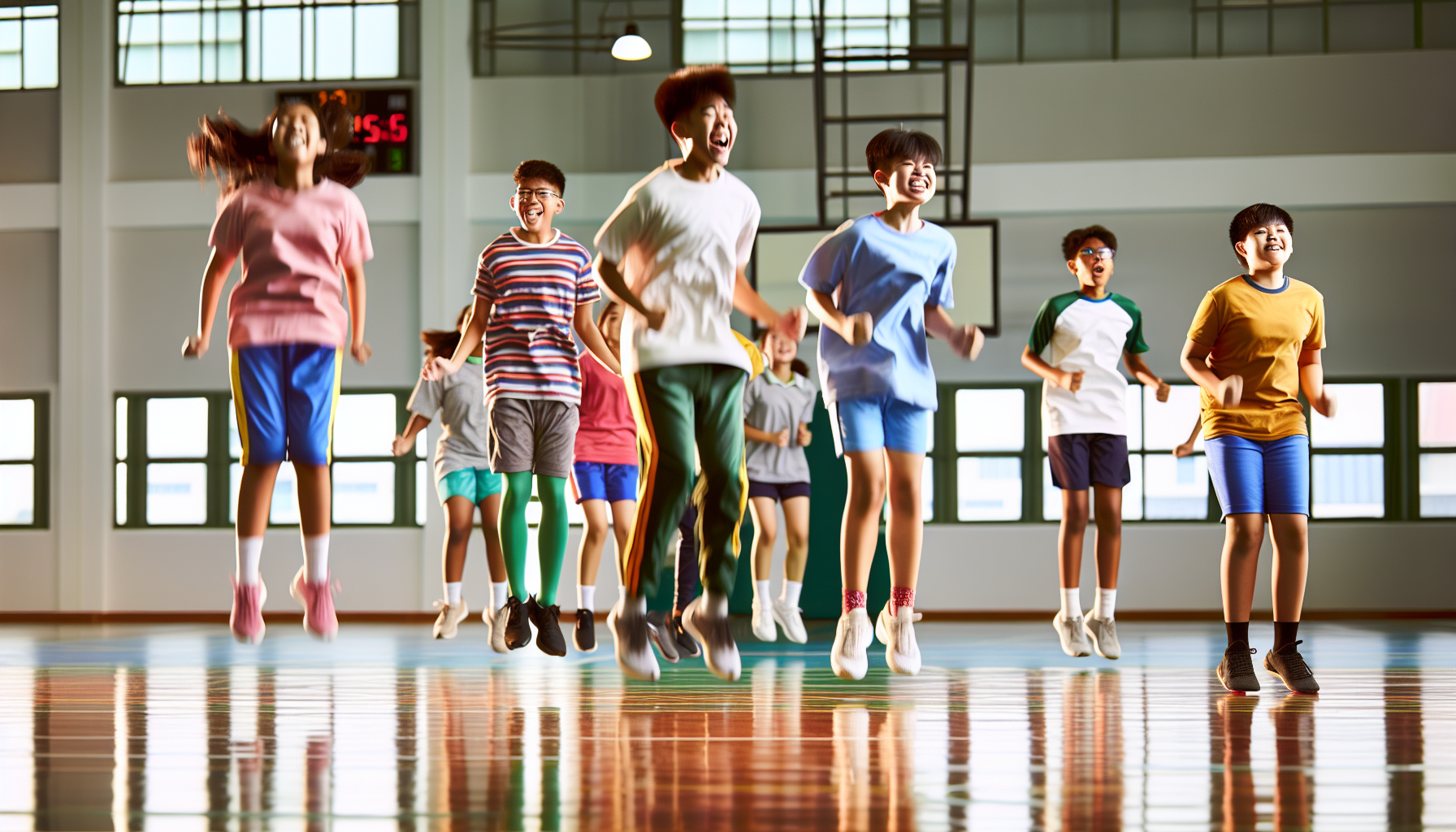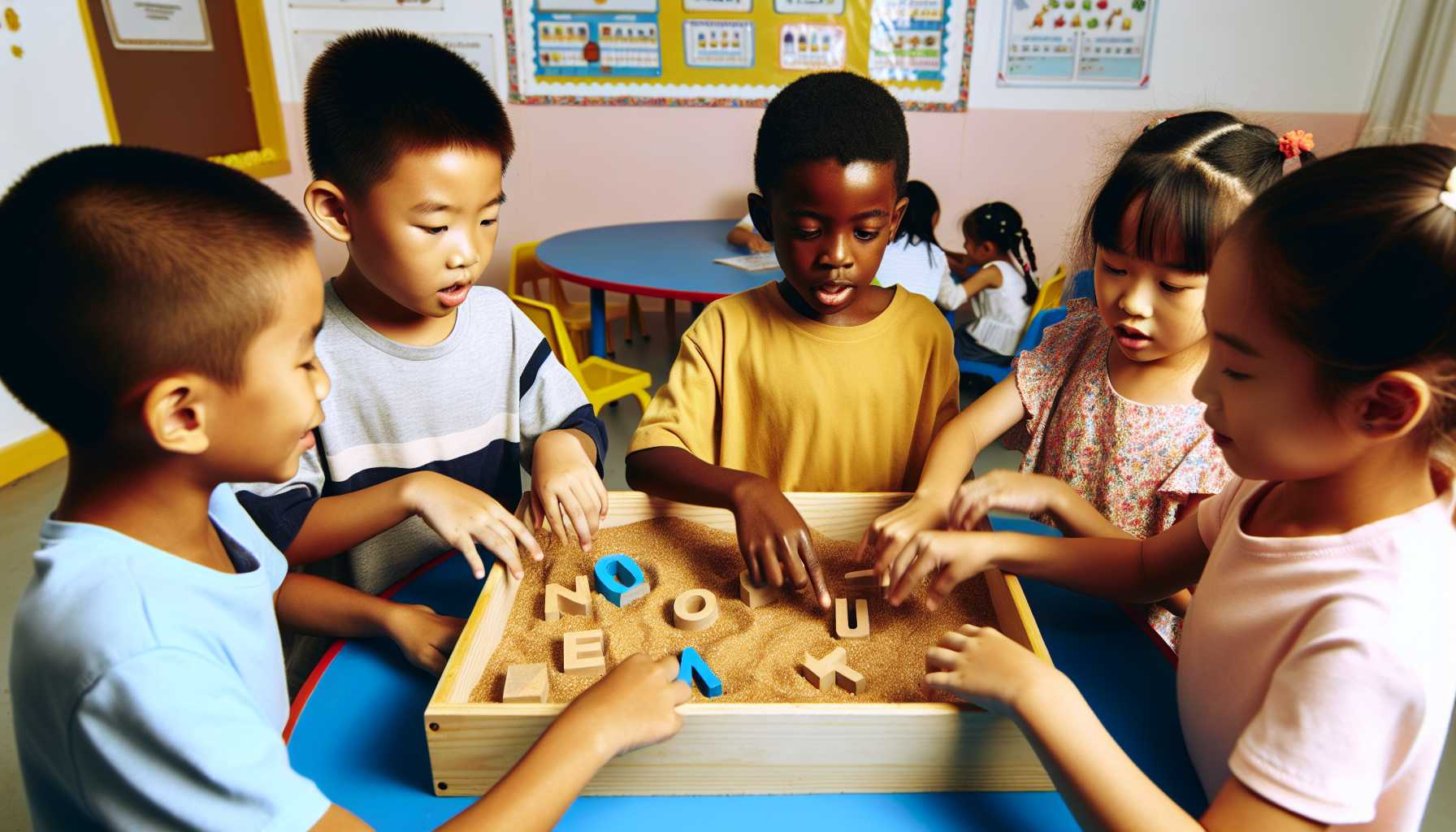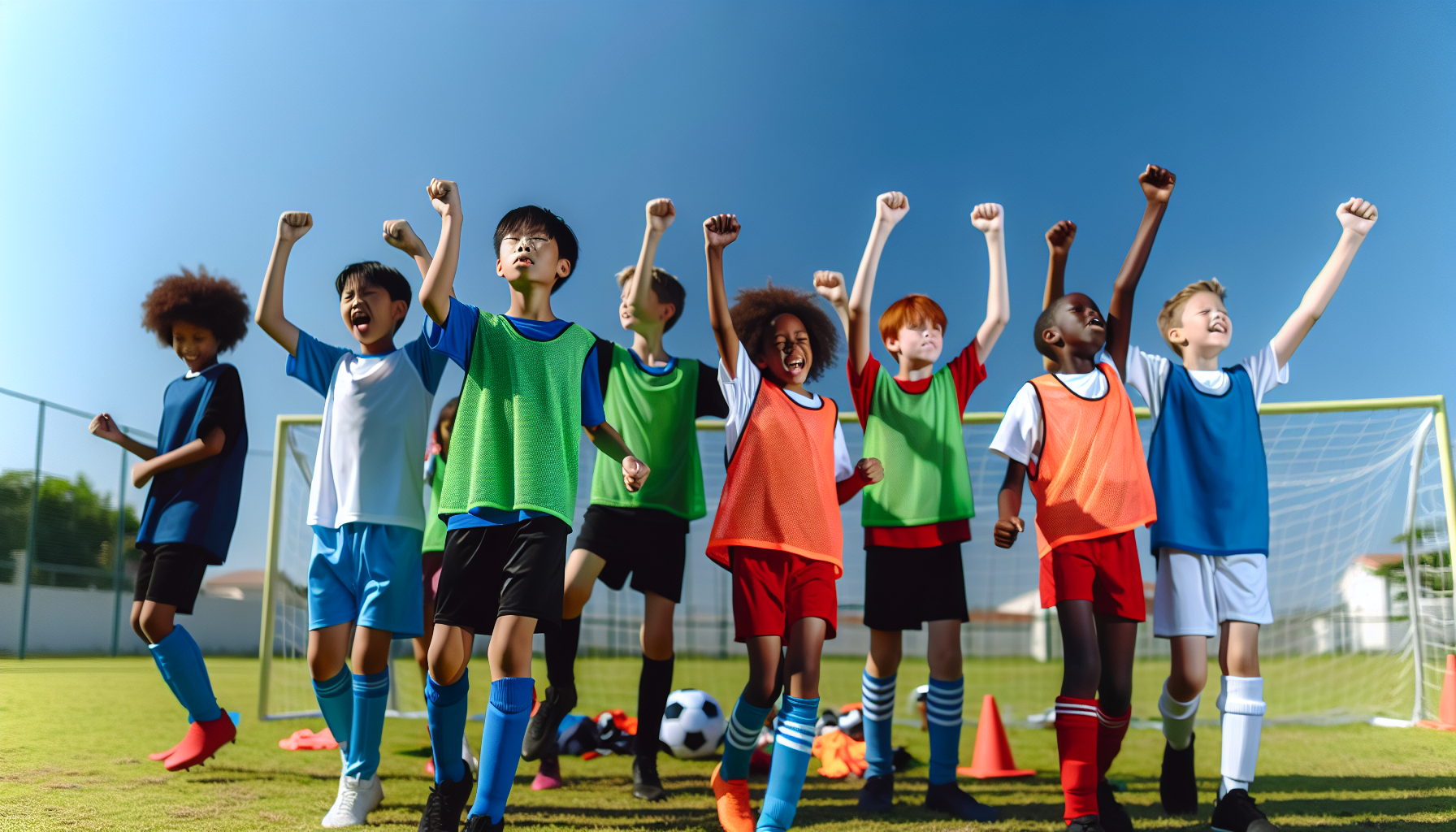What are the most effective games in preschool for child development and joy? Our article ranks the top 20 games that actively support physical, social, and cognitive growth. Designed for ease-of-use, each entry details the developmental benefits and playful appeal, ensuring you can make informed choices for your preschoolers. Find out how these games can enhance your child’s preschool experience.
Table of Contents
ToggleKey Takeaways
- Preschool games are diverse, aid child development, and foster a range of skills from social interaction to fine and gross motor development, all within age-appropriate contexts.
- Creative play, musical movement, and group games not only entertain but also significantly contribute to cognitive, language, literacy, and fine motor skills enhancement for preschoolers.
- Integrating technology in preschool education should involve educational apps and safe gaming practices, but it’s essential to balance screen time with physical activities to promote overall well-being.
Exploring the World of Preschool Games
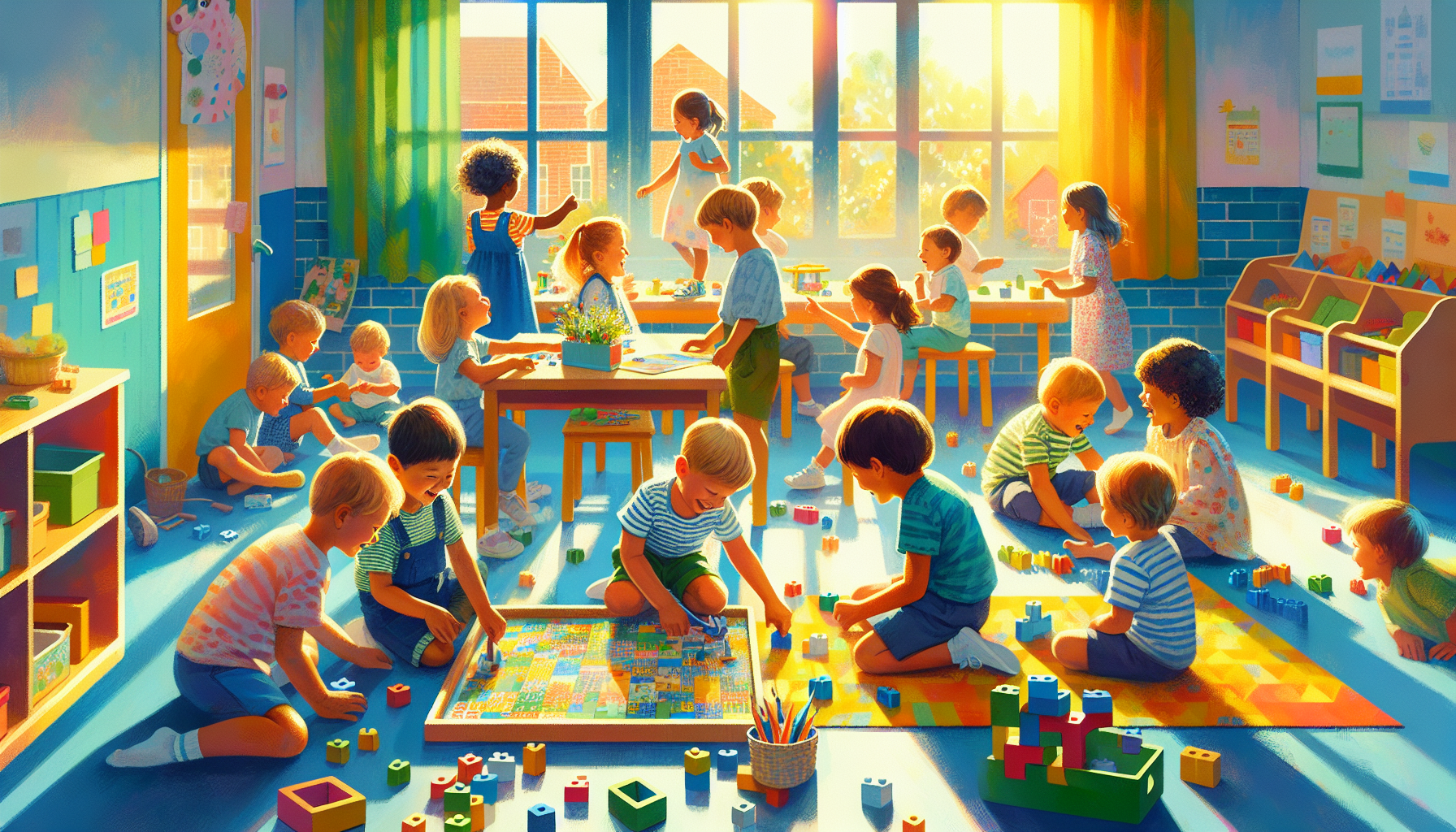
Preschool games, diverse in shape and size, each hold unique potential to aid in child development and learning. They enhance gross motor development, foster imaginative play, and even mimic real-life activities where a person walks or moves. Through games like ‘Animal Walks,’ children can act out the movements of different animals, engaging their bodies and minds simultaneously.
We should also remember the joy preschoolers derive from games that mirror real-life activities. Their love for learning through direct interaction and kinetic experiences is catered to by games that use real tools.
The Role of Play in Preschool Education
Play forms a crucial component of preschool education. It contributes to child development in various ways, including:
- Nurturing independence
- Providing stress relief
- Enhancing well-being
- Improving learning outcomes among preschoolers
Play is a fundamental part of the educational process, and it’s even better when you play music alongside it.
Types of Games in Preschool Settings
A variety of games designed to cater to different aspects of child development populate preschool settings. Physical activities such as Balloon Tennis and Parachute Activities help preschoolers develop gross motor skills and coordination. Meanwhile, games like ‘Heads Talk Tails Walk’ provide a fun way for kids to learn about animals.
Selecting Age-Appropriate Games for Preschoolers
It is vital to select age-appropriate games for preschoolers. It’s not just about keeping the games safe and suitable for their physical abilities, but also about aligning with their attention spans and interests.
Games for preschool children should encourage physical activity, creativity, and imagination, while adhering to safety guidelines and waiting for the green light from parents or guardians.
Building Social Skills Through Group Games
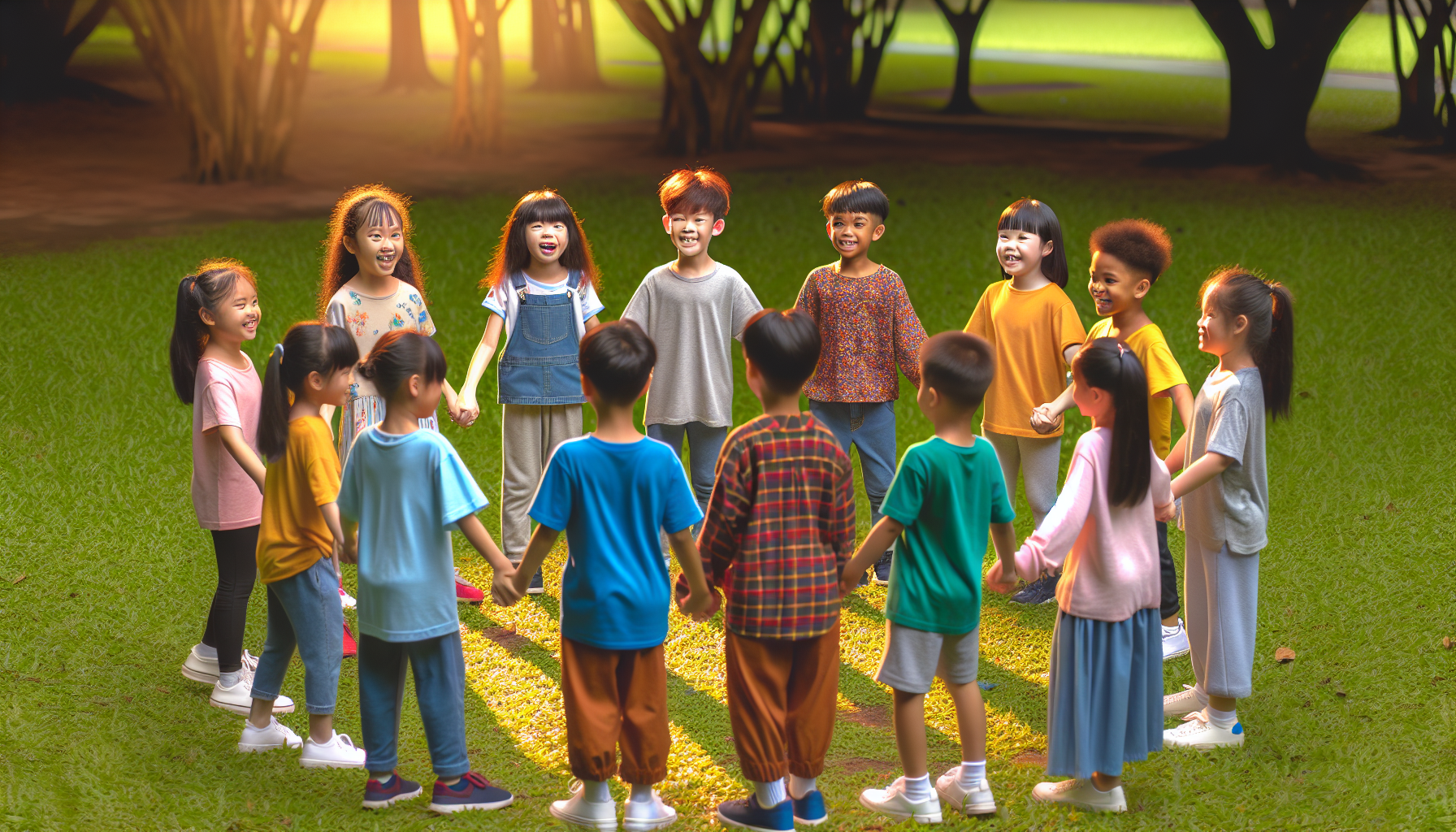
Group games, especially in small groups, are instrumental in nurturing social skills like sharing, turn-taking, and teamwork in preschoolers. Activities like the ‘Skippyroo Kangaroo’ and ‘Button, Button, Who’s Got the Button’ cultivate social understanding and communication skills, making children learn to listen and interact effectively.
Circle Time Favorites
Interactive environments promoting social interaction among children are created by circle games like ‘Duck, Duck, Goose’. The ‘Make Up a Story’ game, for instance, encourages creativity and language development as each child contributes to the story using their imagination.
Partner Play Activities
Cooperation and communication between children are enhanced by partner play activities. Some examples of partner play activities include:
- Mirror Image
- Dress-Up Relay
- The Staring Contest
- The Can’t Laugh Challenge
These games encourage children to work in unison and develop a sense of teamwork, while also helping to improve communication skills and hand eye coordination.
Cooperative Team Challenges
Creative problem-solving is promoted by cooperative team challenges like ‘Flip-the-Tarp Challenge,’ ‘Paper Tower,’ and ‘Classification’. Children strategize to fulfill the goal together, enhancing their ability to reach collective goals and work as a team.
Enhancing Fine Motor Skills with Creative Play
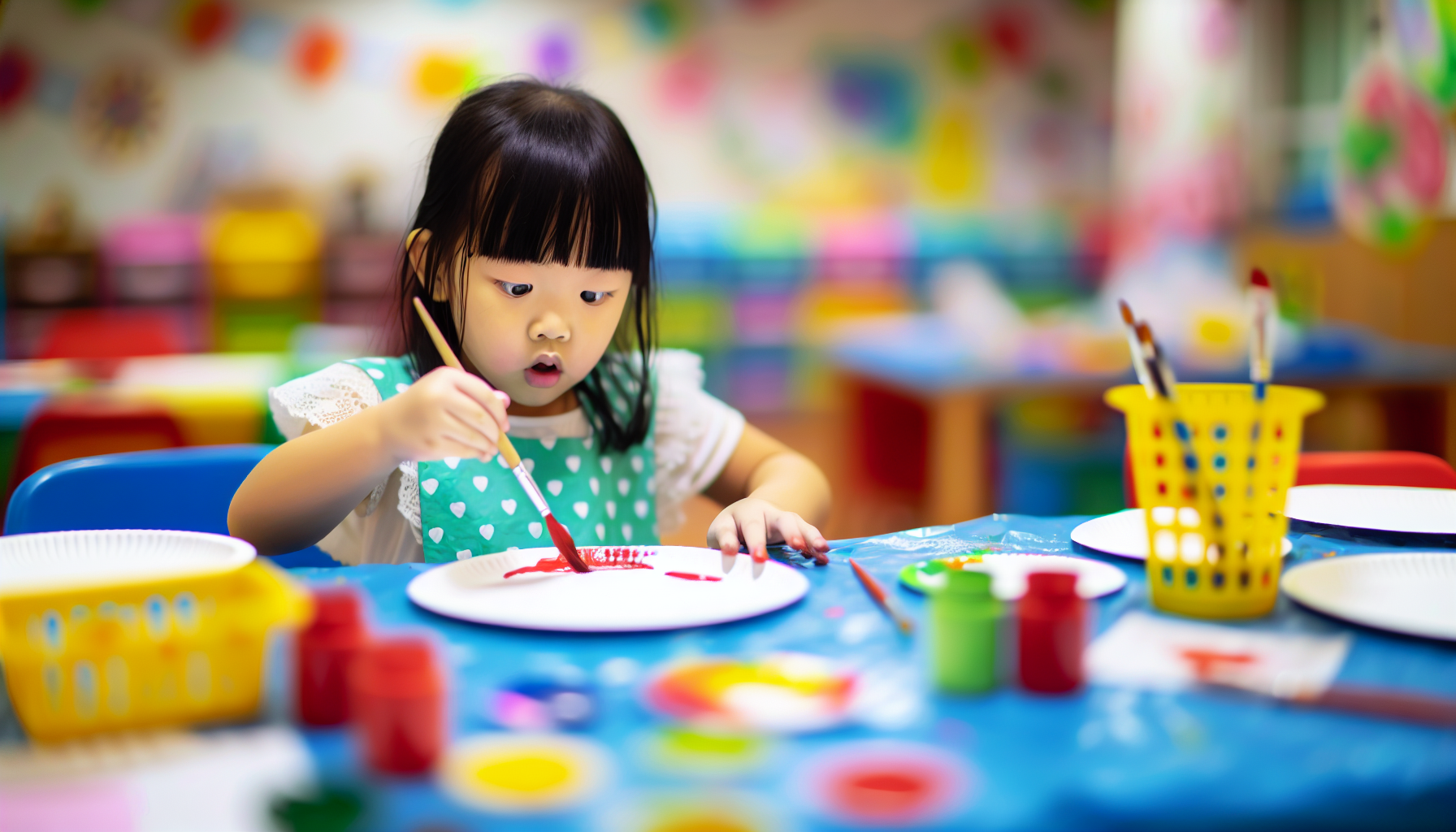
Creative play offers a multitude of opportunities for preschoolers to develop their fine motor skills. From shaping clay into snowballs to cutting with scissors, these activities significantly enhance preschoolers’ fine motor development.
Artistic Adventures with Paper Plates
Paper plate activities contribute to the improvement of scissor skills, hand strength, and eye-hand coordination. Crafting masks or animals, weaving with yarn or ribbons through slits, and creating mosaics, all using paper plates, can refine fine motor precision and enhance creative play.
Manipulative Fun with Small Objects
Activities involving small objects like beads and tweezers provide plenty of opportunities for preschoolers to practice and improve their fine motor skills. Threading beads onto strings or pipe cleaners, for instance, supports the development of a neat pincer grasp and finger dexterity.
Sensory Exploration
Sensory bins filled with materials like rice or beans provide a tactile experience that can improve finger dexterity and hand strength as children dig, scoop, and pour. Activities like ‘Paper Plate Lacing’ and ‘Pete the Cat Button Sensory Bin’ combine sensory exploration with fine motor skill development, providing a fun and educational experience for children.
Energizing Gross Motor Games for Active Kids
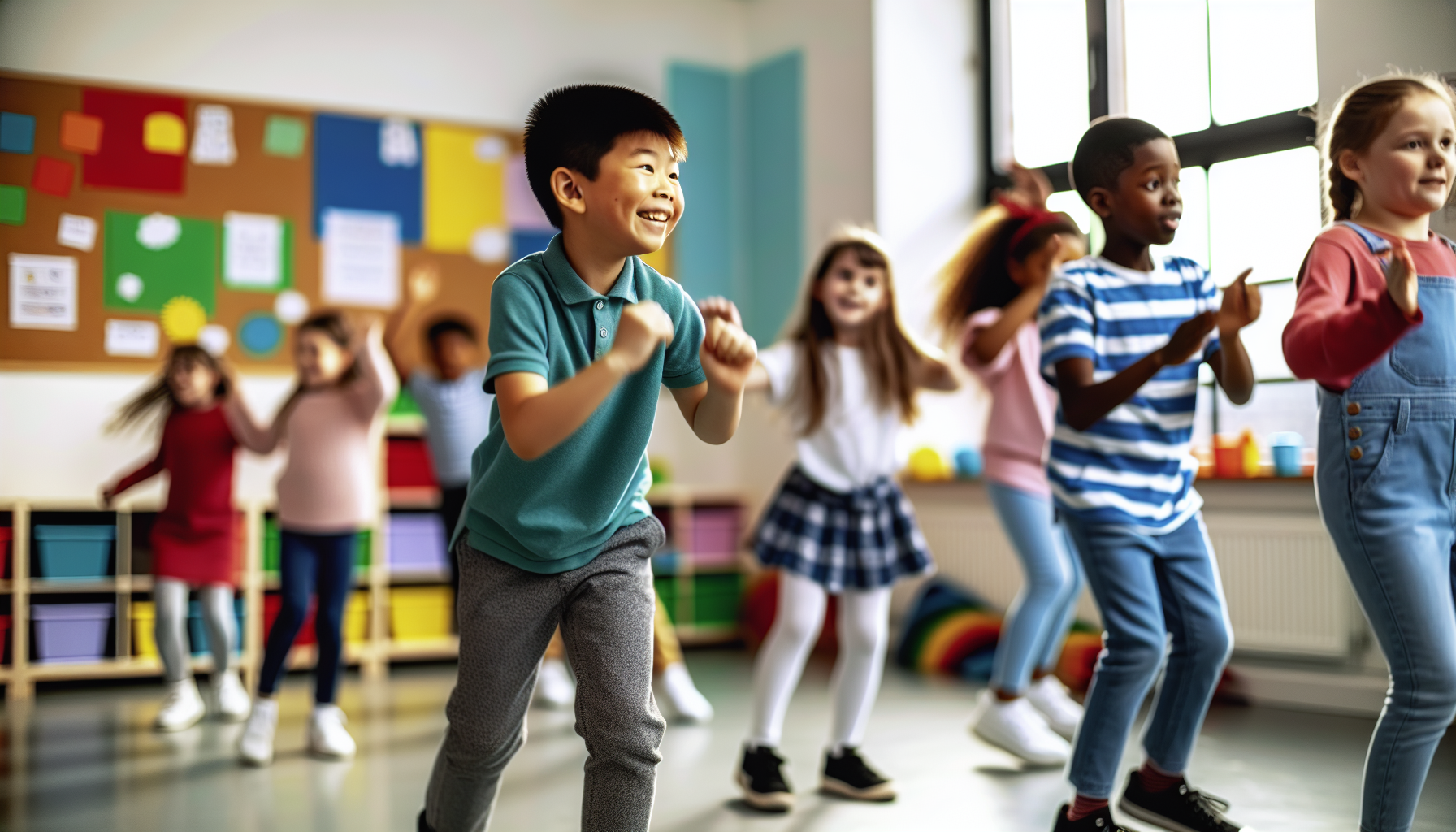
Games that keep children moving and energized are essential for active kids. Games that challenge preschoolers’ balance and coordination, like Chalk Twister and Egg and Spoon Relay Race, are not just fun, but also contribute to their gross motor development.
Musical Movement
Musical movement games, such as ‘Duck, Duck, Goose’ and ‘Hot Potato’, combine physical activity with rhythm and beat recognition, providing a fun and engaging way for children to develop their musicality and gross motor skills.
Obstacle Courses and Relay Races
Preschoolers can challenge their physical abilities in a fun way through obstacle courses and relay races. Whether it’s navigating through an obstacle course or participating in a relay race, these activities encourage children to use their gross motor skills and strategic thinking.
Jump and Hop Activities
Not only are jumping and hopping activities fun, but they are also crucial for developing strength and coordination in preschoolers. Engaging games such as:
- Hopscotch
- Jumping rope
- Simon says
- Musical chairs
Allow children and other children to practice hopping and jumping in a playful environment.
Cognitive Development Through Play
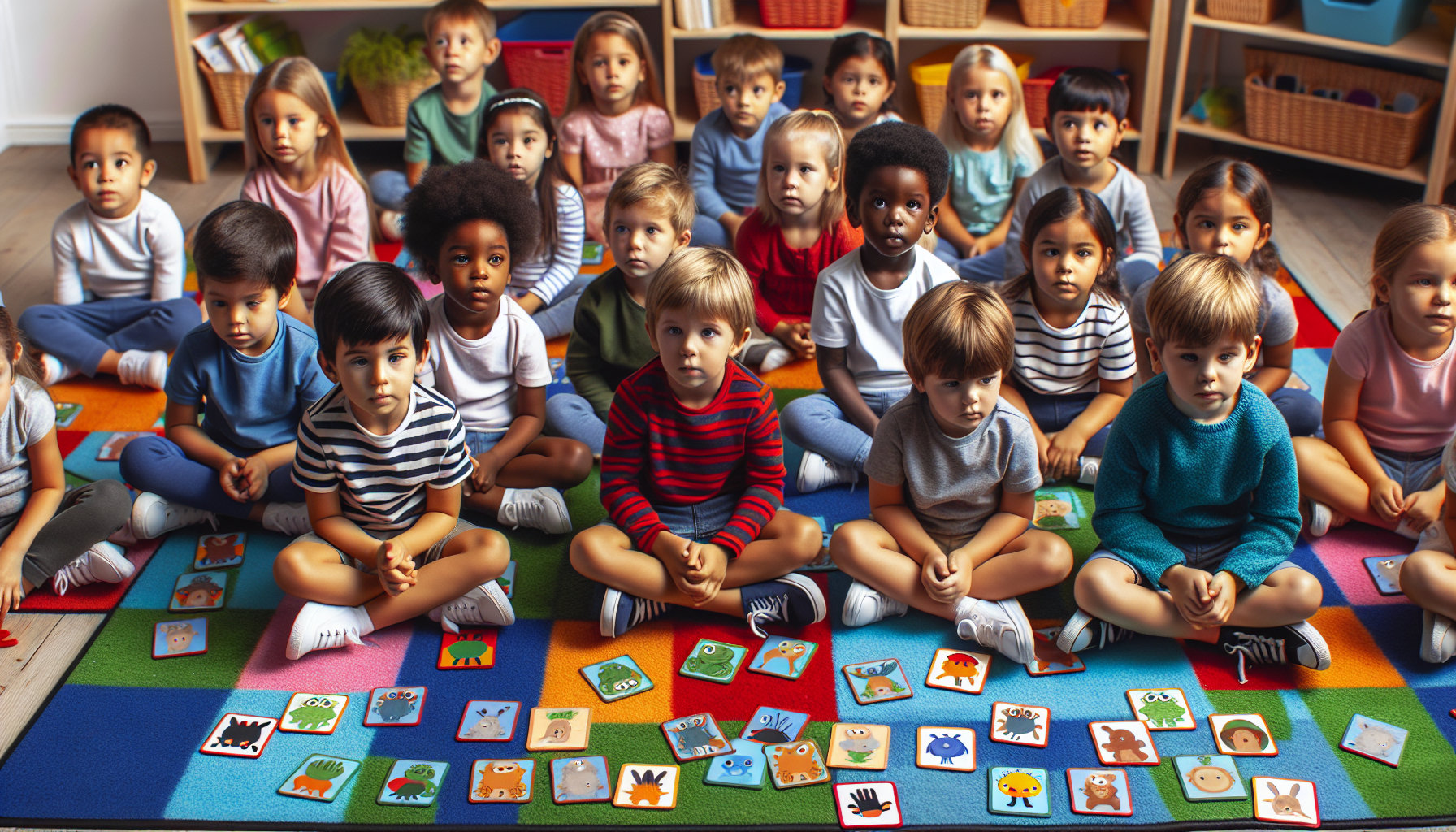
Brain function and executive function, the process of learning, are enhanced by play. Children are more relaxed, focused, and engaged when having fun, leading to better retention of learned material through play.
Memory Match Games
Preschoolers’ cognitive development is supported by memory match games, which enhance short-term and long-term memory, nurture critical thinking through focused attention to detail and visual recognition, and promote spatial awareness.
Puzzle Solving
Preschoolers benefit from puzzle-solving activities, which assist them in understanding how different pieces fit together and encourage critical thinking as children must determine the correct placement of each piece based on its shape and image.
Treasure Hunts for Problem-Solving
By challenging them to follow a trail of clues and solve riddles, treasure hunts engage preschoolers, holding their interest and concentration. This enhances problem-solving skills and decision-making abilities, which are fundamental components of cognitive development.
Language and Literacy Games
Preschool learning incorporates language and literacy games as a crucial part. From storytelling games to letter recognition activities, these games are designed to enhance language and literacy skills in a fun and engaging way.
Storytelling Circles
Children’s storytelling and communication abilities are fostered by storytelling games like ‘And Then’ Story and Interviews, which enable them to create and share narratives.
Letter Recognition Games
For preschoolers, letter recognition is a basic skill. Alphabet Bingo, for instance, engages children in recognizing letters as they match the called-out letter to their bingo cards until full.
Rhyme Time
Phonemic awareness in preschoolers is developed through rhyme time games. The ‘Rhyming Game,’ for example, helps preschoolers develop phonemic awareness by taking turns to find words that rhyme with a given word.
Math and Logic Games for Young Minds
Young minds can find math and logic games incredibly enjoyable. They integrate fun learning goals, such as counting or color recognition, into play, making it enjoyable for preschoolers.
Counting Contests
Children can practice their counting skills in a fun environment provided by counting contests. Games like Number Write and Counting Forwards/Backwards promote numerical order and rote counting skills through a turn-taking approach.
Shape Sorters and Pattern Play
Preschoolers are aided in categorizing shapes based on properties like edges and corners by shape sorters and pattern play games.
Simple Board Games for Strategy
Preschoolers’ strategic thinking is facilitated by simple board games like Sequence for Kids and My First Carcassonne.
Embracing Diversity with Multicultural Games
Preschoolers are introduced to the diverse world around them through multicultural games. They allow children to learn about various cultures in an engaging and enjoyable way, leading to greater cultural awareness and understanding.
Games from Around the Globe
A playful window into global cultures and practices is offered to preschoolers by classic game examples from various countries. ‘Corre, Corre la Guaraca’ from Chile, ‘Pilolo’ from Ghana, and ‘Egg Jousting’ from Armenia, for instance, introduce children to traditional games from different cultures.
Celebrating Holidays Through Games
Preschoolers can enjoyably celebrate different festivities while learning and engaging in classroom activities through holiday-themed games. Games like ‘Pin the Nose on Rudolph’, ‘Jingle Bell Toss’, and ‘Merry Christmas Word Game’ blend traditional festive elements with learning objectives such as fine motor skills and word recognition.
Language Learning with Bilingual Games
Designed to be engaging and fun, bilingual games lead to a natural motivation to learn and build familiarity, confidence, and fluency in a second language.
Music and Rhythm Games to Get Preschoolers Moving
Preschoolers are moved to the beat by music and rhythm games, developing their musicality and gross motor skills. Games like ‘We’re Floating Down the River’ allow children to step and move to the beat while singing, promoting their understanding of musical meter. When the music stops, it also helps them develop their gross motor skills by quickly reacting and adjusting their movements.
Sing-Along Challenges
Music and rhythm skills in preschoolers can be enhanced by sing-along challenges. Nursery Rhymes such as ‘1, 2, Buckle My Shoe’ and ‘Twinkle, Twinkle, Little Star’ are essential in teaching rhyming and rhythm to preschoolers through sing-along challenges.
Rhythm and Beat Games
Preschoolers can find rhythm and beat games a lot of fun. Musical Instruments, such as shakers and drums, allow children to play in rhythm with music, enhancing their musicality and sense of beat.
Dance Parties with Educational Twists
An educational experience can be provided by dance parties. When you incorporate learning elements like counting and alphabet recognition into dance movements, kids get to learn while having fun.
Technology in Preschool Games
In preschool games, technology plays a significant role. It can create captivating and immersive learning experiences that can hold a child’s attention for longer periods.
Educational Apps and Games
To create an engaging learning environment, educational apps for preschoolers often integrate game-like experiences. Apps like SplashLearn, ABCmouse, and Khan Academy Kids offer comprehensive educational content that covers subjects like reading, math, science, and art.
Balancing Screen Time with Physical Play
Despite the many benefits of technology, balancing screen time with physical play is crucial, not just for an entire year but throughout childhood. Experts recommend no more than 1 hour of screen time per day for preschoolers, suggesting a family media plan with clear rules to balance screen time with physical activities.
Safe Online Gaming Practices
Safety is paramount when it comes to online gaming. Children should play online games anonymously, avoiding the sharing of personal information that could compromise their privacy and security.
Summary
To sum up, preschool games offer a wealth of benefits, from enhancing fine motor skills and cognitive development to fostering social skills and cultural awareness. Whether it’s a classic game of ‘Duck, Duck, Goose,’ a treasure hunt that boosts problem-solving skills, or a multicultural game that introduces children to different cultures, these games are an essential part of early childhood education. So, let’s embrace the joy of play and leverage its power to shape our little ones’ learning journey in the most engaging and fun way possible.
Frequently Asked Questions
What type of game is appropriate to the preschooler?
A simple board game is appropriate for preschoolers as it helps them learn about taking turns, following rules, counting, and playing fair. With practice, children can learn to enjoy this type of play.
What are the various play activities for preschoolers?
Encourage your preschooler’s imagination with play ideas that help them learn and grow. Let’s explore 15 activities to support their development.
How do I make my preschool class fun?
To make your preschool class fun, you can try activities such as bubble painting, storytelling, outdoor exploration, baking, and creating obstacle courses. These interactive and hands-on experiences will engage your students and make learning enjoyable.
Why are games important in preschool education?
Games are important in preschool education because they contribute to child development by allowing learning through movement and play, while also helping children develop important social-emotional skills. Learning through play is an essential part of preschool education.
What types of games are suitable for preschool settings?
Preschool settings are ideal for a variety of games, including physical activities, imaginative play, and educational games that mimic real-life activities, catering to different aspects of child development. So, games like Balloon Tennis, ‘Animal Walks,’ and educational activities are great options for preschoolers.
Share this post: on Twitter on Facebook on Google+

